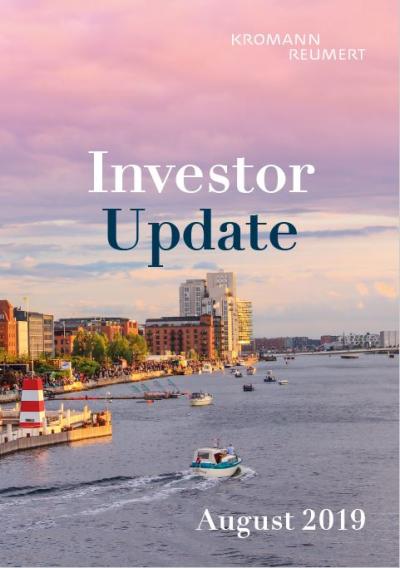Building a data centre in Denmark: Key local partners
A string of tech companies are choosing Denmark as the site of their new European data centres. In a series of features, Kromann Reumert summarises some of the critical issues facing developers and investors. In this article, we discuss the Danish landscape and key local partners.
Denmark has a highly developed free market and the World Bank currently ranks Denmark among the top countries for ease of doing business.
One of the reasons for this ranking is Denmark's a well-functioning and transparent public sector with English-speaking personnel, hardly any corruption, and generally a high level of service.
The process for registering a (limited liability) company in Denmark is very easy and, subject to KYC and other formalities, can be completed within hours.
However, in connection with large-scale infrastructure projects, getting on the right footing at the local district level is imperative for success.
Invest in Denmark
Invest in Denmark is a federal organisation which has been set up to broker and help foreign businesses that wish to do just that: invest in Denmark.
As they put it themselves: “We provide tailor-made solutions for foreign companies looking to set up or expand business or research activities in Denmark.”1
The organisation employs consultants specialising in the digital sector who can provide you with bench-marking analyses, fact-finding tours, contact to potential partners, industry insights as well as advice on framework conditions.
Getting in touch with Invest in Denmark is a good place to start for data centre developers, as they can help locate suitable sites and — especially in the early stages — facilitate a dialogue with local government.
Local government
Denmark is divided into five regions which are further divided into 98 municipalities. Both regions and municipalities are run by locally elected politicians.
Municipalities lay out and decide on municipal and district plans that specify how areas may and may not be used. Municipalities also issue building permits, making them a key partner for developers.
Most permits are issued within six weeks in zoned areas — the fastest processing time in Europe — but the 98 municipalities differ in their dealings with and overall approach to businesses.
Most municipalities see great potential in hosting data centres, and some go the extra mile to attract them. In a few instances, some local authorities have even had tailor-made local plans made ready in advance for locations ideally situated close to main utilities.
Utilities
Another key partner is Energinet, a federal organisation that owns, operates and constructs the Danish high-voltage grid which supplies electricity to consumers and businesses.
Smaller data centres typically deal with local energy distributors. For smaller data centres, such as colocation data centres, Denmark is rich in plug and play sites situated close to electricity supply.
Typically, developers and operators of hyperscale data centres deal directly with Energinet because of the amount of energy required, including – in some instances – the requirement for the facility to be transmission connected rather than connected to the distribution network.
While the many new data centres are still viewed in a positive light, concerns have been raised about their impact on the energy infrastructure. Regulations providing for reutilization of excess heat along with other issues can make energy a delicate topic. We will take a closer look at this in an upcoming feature.
Local counselling
The friendly, easy and transparent business climate notwithstanding, there are numerous small oddities in the Danish system and culture that can cause problems for developers and owners of data centres.
Apart from energy, an issue that needs certain attention and local counselling is the process of buying up land, especially if a larger area is needed.
Typically, the envisaged project site may be owned by a few large and several smaller landowners. Further, it may also be necessary to acquire adjoining residential homes, in order to implement the required local plan and secure support from neighbours and community. Understanding local interests and sentiments are crucial in handling the acquisition process. Disenchanted neighbours and local politicians can stir a commotion in local media, which can easily turn into nationwide news, given the small size of the country.
The article is part of our Investor Update: August 2019.

Contact
